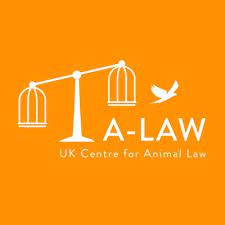UK Centre for Animal Law – 2022 Comments on the Australia Trade Bill
The comments made by UK Centre for Animal Law on 15 January 2022.
Written evidence submission from UK Centre for Animal Law
- Thank you for the opportunity to provide our comments on the UK Australia Free Trade Agreement. Having carefully studied this text, overall, from an animal welfare perspective, we find it to be a disappointment. For although the government has plainly heard from many sources including MPs, campaigning organisations, and members of the public, about the importance of strong animal welfare provisions, it has chosen to implement this in a half-hearted manner.
- We understand the importance that the government has attached to joining the Comprehensive and Progressive Trans-Pacific Partnership but are particularly concerned that sticking closely to that text means not pursuing our own interests. While our comments are specific to the UK-Australia, many of them are also likely to apply to the impending agreement with New Zealand, others to come in the future, and the CPTPP.
- The following are the areas of greatest concern to us:
Lack of animal welfare conditionality for tariff removal
- It has been widely reported that the complete removal of tariffs for beef and sheepmeat products was Australia’s top priority during negotiations with the UK. It is our view that this should only have been granted in return for meeting UK core standards on animal welfare, in particular that meat exported to the UK did not come from animals which had been subject to hot-iron branding or mulesing. Hot-iron branding is still permitted in all States and Territories of Australia but is banned in the UK. Mulesing is a painful procedure that involves cutting crescent-shaped flaps of skin from around the lamb’s breech and tail using sharp shears. The resulting wound, when healed creates an area of bare, stretched scar tissues which diminishes the attraction of blowflies thereby reducing the risk of fly strikes.
- Such conditionality, based around consistent core standards, would have been the single most significant measure that the UK government could have taken to support the global welfare of animals. We are further concerned that this FTA will create legal impediment to the UK taking future steps to ban meat products entering the UK which have resulted from cruel practices.
Animal testing language within the cosmetics annex to the TBT chapter
- Paragraph 22 of Annex 7A on Cosmetics states that “Neither Party shall require that a cosmetic product be tested on animals to determine the safety of that cosmetic product, unless there is no validated alternative method available to assess safety. A Party may, however, consider the results of animal testing to determine the safety of a cosmetic product.” We are disappointed that this language does not recognise the rights of both parties to fully ban the production, import or sale of cosmetics tested on animals. Indeed, the testing of cosmetic products and ingredients used exclusively for cosmetics is banned in the UK and this includes a ban on the marketing and sale of such products. We are aware that the language adopted is consistent with language used in CPTPP, and as that negotiation proceeds would ask as a minimum, that the UK government make a clear statement that nothing within these trade agreements prevents the UK from maintaining and extending current policies.
Reference to science in the SPS chapter
- We note that the Sanitary and Phytosanitary (SPS) chapter makes a direct reference to the need for regulations to be based on science, but not explicitly to the rights of the parties to set the appropriate levels of protection to them, or the use of precaution where the scientific evidence can be considered unclear. Given that the UK currently has rules pertaining to food sales that are based on a precautionary principle, which the government has stated will not be changed, this appears to be in contradiction to that commitment.
- Dispute settlement provisions do not apply to this chapter, thus any UK decisions that Australia considers not to be based on science cannot be challenged in this way. However, we can expect that Australia will raise issues such as hormone-treated cattle in the SPS Committee, arguing that under the terms of the SPS text this should be allowed for sale in the UK.
- It is important that the UK government explains the contradiction between the SPS text and their stated position on not changing UK food rules. This is particularly the case given similar text applies in the CPTPP. Further, as indicated above, the UK should be ensuring the future policy space exists to restrict products for sale based on their production methods, and we are concerned this will be affected by this text.
Animal welfare considered less important than similar issues such as marine environment
- We welcome the agreement between the parties that animals are sentient beings, and the connection between improved welfare of farmed animals and sustainable food production systems, in paragraph 1 of Article 25.1 on Animal Welfare. The presence of text on Animal Welfare on Antimicrobial Resistance is welcome. Nonetheless, it is clear that the UK Government consider these issues less important than those included in Chapter 22 on Environment such as biodiversity, the marine environment, and sustainable forest management. This is because that chapter includes cooperation, public participation, a working group, consultations, and the potential use of dispute settlement. The Animal Welfare chapter by contrast only includes cooperation and a working group.
- Without wishing to establish a hierarchy of different issues, the approach of the UK Government seems not to reflect UK public opinion. We would therefore call for a consistent approach to be taken, in this and future UK FTAs.
Weak language on CITES, and banned trade included in tariff schedules
- We welcome much of the content of Chapter 22 Environment, but find some of the commitments to be surprisingly loose. For example, we would expect stronger language on the Convention on International Trade in Endangered Species of Wild Fauna and Flora (CITES) than the parties merely endeavouring to implement this, as in paragraph 3c of Article 22.16.
- The CITES article could also have been expanded to other endangered species, particularly whales. Both the UK and Australia outlawed the practice of whaling in the seventies. Given the strong focus of the environmental chapter on marine conservation and ecosystems, the opportunity to include specific language on whaling was missed.
- We also note the presence in the tariff schedules for products whose trade is referenced in the text as requiring of particular conservation, such as “ivory, unworked or simply prepared, its powder and waste”, and sharks, marine turtles, seabirds, and marine mammals. These items should have been left out of tariff considerations.
Conclusion:
- The UK-Australia could and should have gone further on a number of issues, including making tariff commitments conditional on core standards, providing greater protection to the UK’s rights to set our own SPS standards including through the use of precaution, and putting animal welfare alongside other similar issues in the Environment chapter. We would like to see specific government reassurance on these issues, as well as on animal testing on cosmetics. We would further wish to see further progress made in future UK FTAs, including consideration of all of these issues within the talks for accession to CPTPP.
- On the basis of this UK-Australia FTA text, we believe the UK cannot yet be considered to be a leader in animal welfare.


